Mr Michael Dalley (28 March to 8 April 2016)
Mr Michael Dalley (28 March to 8 April 2016)
AST’s 19th OEIR
Mr Michael Dalley is a drama and English Language educator, and a professional theatre practitioner from Melbourne, Australia. He is currently holding the position of Head of Learning: Arts and Technology at Thomas Carr College. He has worked on over 100 professional, independent or student productions since the 1980s. He was active at the St Martins Youth Arts Centre, a semi-professional theatre company in Melbourne, where he worked as an actor, deviser, director and board member. He also joined the Victoria State Opera as a singer in their education touring company, and has worked with most of Melbourne’s major theatre organisations.
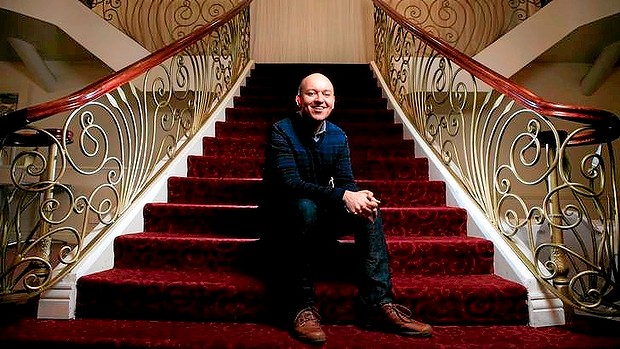
In the last 15 years, he has devised seven original theatre works, and has been nominated for 12 Green Room Awards, of which he has won two. After completing his Masters of Education in Teaching Shakespeare at the University of Melbourne in 2014, he applied his learning to develop rich learning activities for his students. He directed the production of A Midsummer Night’s Dream, devised a hybrid performance of Hamlet, developed a solo performance in response to various Shakespearean texts, and led Year Seven students through a process drama of Macbeth. The students who completed these learning experiences are more confident to deal with Shakespeare text.
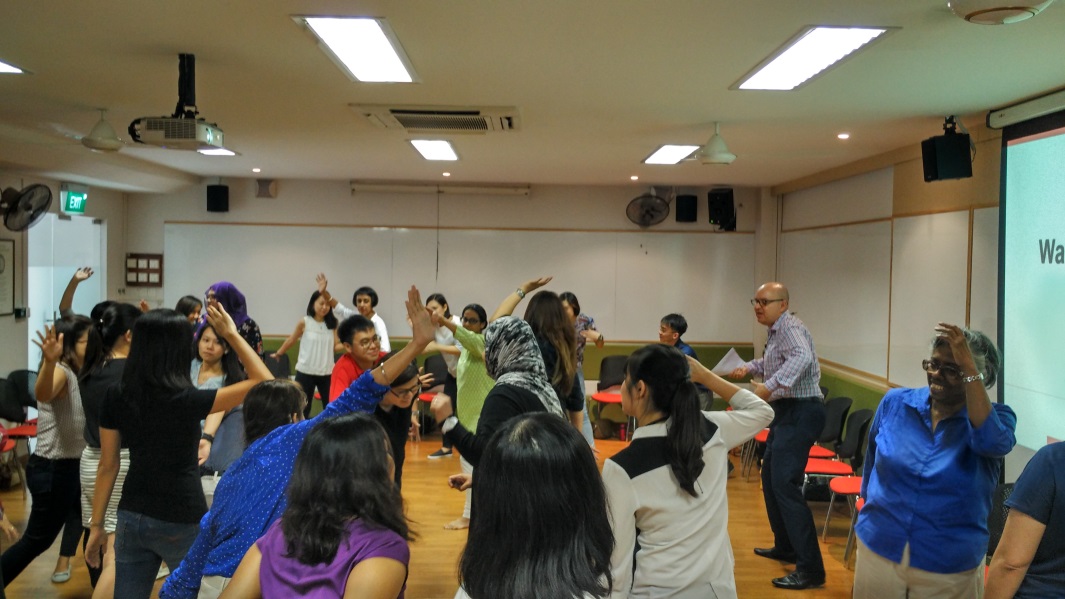
During Mr Dalley’s stint with AST, he conducted four different Master Classes to over 150 teachers from primary schools to junior colleges. There were two Master Classes for literature teachers and another two Master Classes for teachers teaching drama, or who are in-charge of the drama club in school. Through the use of plays from William Shakespeare, he shared with the teachers and key personnel from schools how to use drama as a pedagogy to develop 21st Century Competencies in our students, and how drama could be used to engender in students an ability to engage, both collaboratively and independently, in complex text.
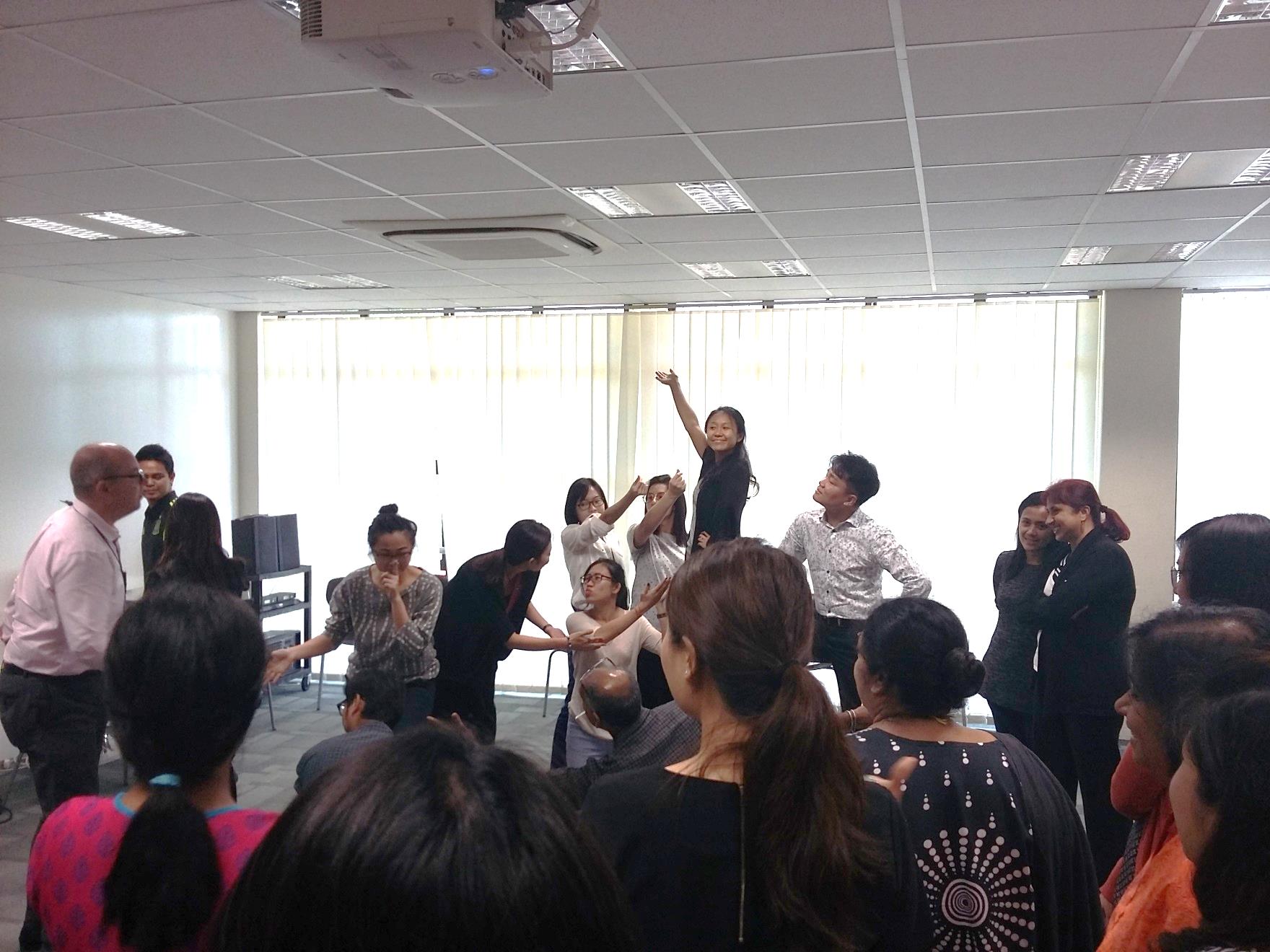
During the two Master Classes on the use of drama pedagogy in literature, Mr Dalley focused on the application of embodied learning techniques in teaching the texts: The Merchant of Venice and Julius Caesar. The techniques required the teachers to form an ensemble where multiple perspectives and layers of meaning could be uncovered. The process drama activities which the teachers have experienced could be applied or modified to suit the needs of their students.
The drama Master Classes focused on the aesthetic aspect of drama. In the Master Class on the use of students’ voice for performance, he led the teachers through practical activities which could be used to support students in effective vocal communication, linking their voices with the use of their bodies and emotions. The other Master Class on analysing and performing a monologue equipped our teachers with skills to enable our students to find an organic and visceral connection with the text rather than be told ‘what it means’ or ‘how to say it’.
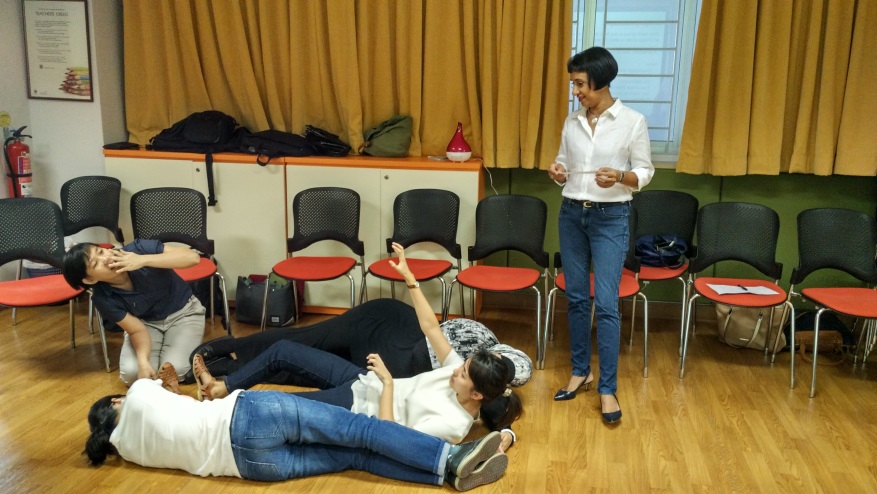
In addition, Mr Li also visited four schools: Outram Secondary, St. Anthony’s Cannosian Secondary, Temasek Junior College, and Xinmin Secondary, where he observed how literature and drama is taught in the Singapore context. He provided feedback on the lessons that he observed, and also had the opportunity to use drama as a pedagogy to teach a class of local students. Mr Dalley encouraged teachers to use process drama as a means to teach literature. Through the process drama, students can get the chance to embody characters and physicalise dramatic moments. Through this experience, students will gain a deeper understanding of the plot development, characters’ feelings and experiences, and the multiple perspectives of the text.
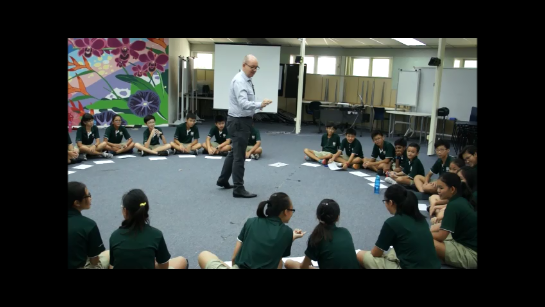
Mr Dalley believes that drama pedagogy in education will provide students with the necessary skills to read and to understand text independently, and to enable them to be life-long learners. This could be strongly felt by those who interacted with him during his attachment in Singapore. His deep knowledge in the subject field, and his generosity in sharing his resources and teaching ideas have been remarkable. Our teachers and officers greatly appreciated the rare chance to interact with him through this OEIR programme.

